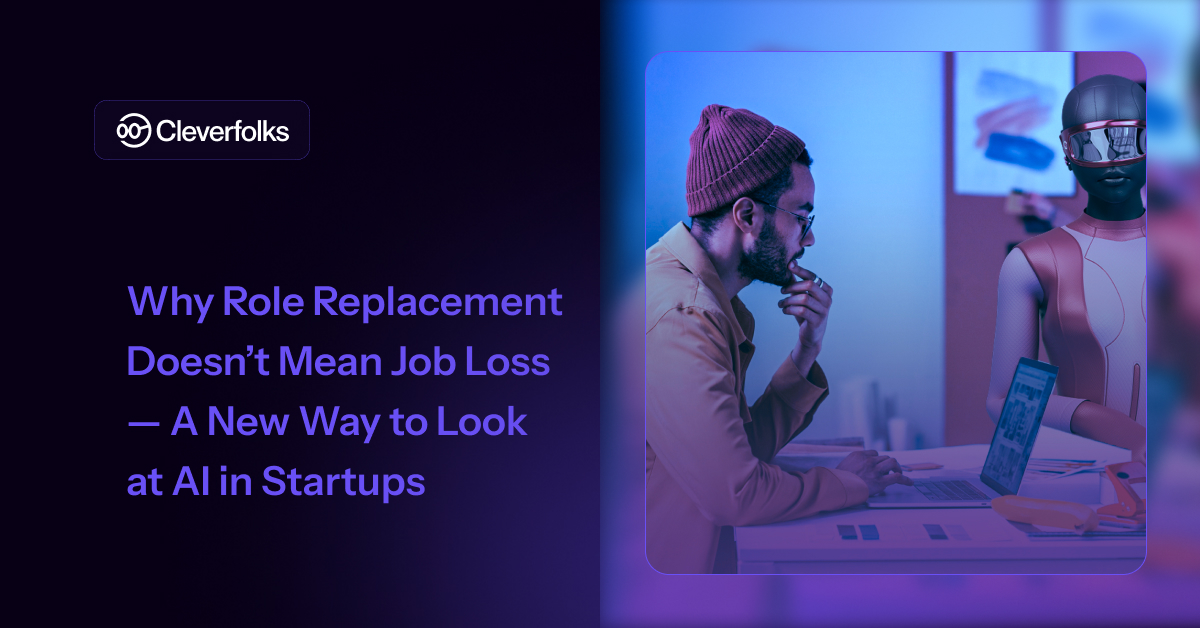The conversation around artificial intelligence in the workplace has been dominated by fear-based narratives that fundamentally misunderstand how modern AI workforce integration actually works. When entrepreneurs ask “why will AI never replace jobs,” they’re approaching the question from the wrong angle entirely, missing the revolutionary transformation that’s already happening in forward-thinking startups across the globe.
Why This Question Misses the Point Entirely
The binary thinking that frames AI as either replacing entire jobs or having no impact at all fails to capture the nuanced reality of how virtual AI employees are being integrated into contemporary workforce ecosystems. Smart startup founders have discovered that the most powerful applications of AI don’t eliminate human positions but rather create specialized AI employees that work alongside human talent in ways that amplify everyone’s capabilities.
Consider how an AI employee for smart workforce management doesn’t replace a human HR manager but instead handles the repetitive data analysis, scheduling conflicts, and initial candidate screening that used to consume 60% of that manager’s day. This transformation allows the human professional to focus on strategic relationship building, complex problem-solving, and creative leadership initiatives that drive real business growth.
The Real Transformation Happening in Modern Startups
While traditional businesses worry about job replacement concerns, innovative startups are building comprehensive AI workforce platforms that demonstrate how role evolution creates more value than simple automation ever could. These companies understand that specialized AI employees excel at handling specific, well-defined tasks within a larger workflow, while human team members provide the contextual intelligence, emotional awareness, and strategic thinking that no artificial system can replicate.
The most successful implementations involve creating hybrid teams where virtual AI employees manage data-intensive processes, customer service inquiries, and routine administrative tasks, while human employees focus on client relationships, creative problem-solving, and business development. This symbiotic relationship within the workforce ecosystem doesn’t just maintain employment levels, it often requires additional hiring as companies scale more efficiently with AI-augmented capabilities.
Concrete Examples from the Startup Trenches
Take the case of a rapidly growing e-commerce startup that implemented an AI workforce for small business operations management. Rather than eliminating positions, they created specialized AI employees that handle inventory tracking, basic customer inquiries, and order processing optimization. This implementation freed their human team members to focus on product development, strategic partnerships, and customer experience innovation.
The result? The company expanded from eight employees to fifteen within six months, as the increased efficiency from their AI employee for smart workforce coordination allowed them to take on larger clients and more complex projects. The virtual AI employees didn’t replace anyone, they became force multipliers that enabled the entire team to operate at a higher level of strategic impact.
Another compelling example involves a marketing startup that integrated specialized AI employees into their content creation workflow. These AI team members handle initial research, data analysis, and content optimization, while human creatives focus on strategy, brand storytelling, and client relationship management. The workforce platform they developed around this model has become so effective that they’re now licensing it to other agencies.
Which Roles Are Evolving First in AI-Integrated Startups
The most significant transformations are happening in roles that involve high volumes of routine tasks combined with opportunities for strategic thinking. Customer service representatives are evolving into customer success strategists, with virtual AI employees handling initial inquiries while humans focus on complex problem resolution and relationship building.
Financial analysts in startups are seeing their roles expand dramatically as specialized AI employees handle data collection and basic analysis, freeing human professionals to focus on market insights, strategic recommendations, and investor relations. The AI workforce for small business financial management doesn’t replace the analyst, it elevates them from data processor to strategic advisor.
Marketing professionals are experiencing perhaps the most dramatic role evolution, with AI employees for smart workforce marketing handling campaign optimization, A/B testing management, and performance tracking, while human marketers focus on creative strategy, brand positioning, and cross-functional collaboration. This division of labor within the workforce ecosystem creates more interesting, higher-value work for human team members while dramatically improving overall campaign performance.
Building Your AI-Augmented Workforce Platform Strategy
The key to successful AI integration lies in understanding that virtual AI employees should complement rather than compete with human capabilities. Smart startup founders are building workforce platforms that clearly define which tasks belong to specialized AI employees and which require human judgment, creativity, and relationship skills.
This approach to workforce ecosystem design recognizes that the most valuable AI implementations create new opportunities for human employees to focus on higher-level strategic work. When an AI employee for smart workforce operations handles scheduling, resource allocation, and routine communications, human managers can spend more time on team development, strategic planning, and innovation initiatives.
The startups that thrive in this new landscape will be those that view AI workforce integration as an opportunity to elevate every human role rather than eliminate positions. By creating comprehensive workforce platforms that leverage both virtual AI employees and human expertise, these companies are building more resilient, scalable, and ultimately successful organizations.
The future of work isn’t about AI replacing humans, it’s about creating specialized AI employees that unlock human potential within thoughtfully designed workforce ecosystems. For startups willing to embrace this collaborative approach, the opportunities for growth and innovation are unprecedented.
Experience a New Way to Look Into AI for Startups with Cleverfolks
Ready to transform your startup’s approach to AI workforce integration? Cleverfolks represents the next evolution in how small businesses can leverage specialized AI employees within their workforce ecosystem without the fear of job displacement. Our workforce platform is designed specifically for startups that want to experience the power of virtual AI employees while maintaining the human-centered approach that drives real innovation.
Be among the first to experience Cleverfolks
Early adopters get 50% off for the first 6 months and priority access to new AI employees as they launch.
Limited spots available for early access. No credit card required.
